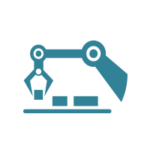Explore the ScaleUp Annual Review 2020
Select a section to expand and explore this year's review..
CONTENTS

Introduction 2020

Chapter 1 2020
The Scaleup business landscape

Chapter 2 2020
Leading Programmes Breaking Down the Barriers for Scaleups

Chapter 3 2020
The local scaleup ecosystem

Chapter 4 2020
Shaping policy to foster UK scaleups: Breaking down barriers

Chapter 5 2020
Looking Forward

Scaleup Stories 2020

Annexes 2020

Greater Birmingham and Solihull
Joined-up Scaleup Services Driven by Dedicated Account Managers
DATA:

160 Businesses attended Scale Up and investment readiness workshops

3,394 referrals made to over 100 business support partners

£5.4m funding for scaling businesses from MEIF
Participating sectors






BACKGROUND
Greater Birmingham and Solihull LEP has focused its approach on developing cross-sector models of support that are built on sharing and learning from networks. Since 2016 high-growth businesses are benefiting from targeted activities and focused scaleup support based upon DEG and SUI learnings.
ONS data for 2017 shows that there are 985 scaleups in the Greater Birmingham and Solihull LEP: 365 are classified as scaleups due to rapid growth in their employees, 810 are classified as scaleups due to rapid growth in their turnover and 190 are scaleups that are increasing both employment and turnover simultaneously.
The ONS data reflects that across the four-year period from 2014 to 2017 the density of scaleups has increased by 3.31 per 100,000 of population per year, which is below the median of +3.90 per 100,000 of population.
SCALEUP PROGRAMMES
Working in partnership with the Aston Centre for Growth, the Growth Hub has now delivered its Scale Up Workshop to five cohorts, supporting over 110 businesses. Company executives have been taken through a process to explore ways to scale their businesses, including product innovation, peer to peer group challenges and the use of business development tools such as the Business Model Canvas. Each workshop included a follow-on clinic to give business leaders direct guidance.
The Growth Hub is now providing learnings from its programme to the West Midlands Combined Authority to develop a Creative Scaleup Programme across the region as well exploring ways to develop sector-specific programmes in its area.
In addition, 50 businesses in four cohorts have participated in investment readiness workshops delivered in partnership with VC firm Midven and the NatWest Accelerator.
These workshops focused on scaling and high potential scaleup businesses gaining direct industry insight on how to prepare their business for financial investment and lending opportunities from the financier’s perspective.
The region has identified the need to tackle the local equity funding gap as a priority. As a proposed solution, the LEP has provided £70,000 in seed funding to form the Ark Hub Midlands. The Ark Hub was officially launched as part of Birmingham Tech Week in October 2019 to combine business support and funding from angel investors. The aim is to roll out the programme across the region, subject to additional support by neighbouring LEPs.
LESSONS LEARNED:
Leveraging up what works, especially the value of connectivity and referrals. Where possible businesses participating in the Scale Up workshops are referred on to other growth programmes endorsed by the ScaleUp Institute; for example over 80 referrals have been made to Goldmans Sachs 10KSB UK programme between June 2018 to September 2019.
Future Plans
From October the Growth Hub moved into phase two of growth, increasing its capacity and support for growing businesses. More than 10 new business account managers and business navigators will be introduced and their objective will be to identify high growth businesses in target sectors.
The Growth Hub has partnered with former trainers from Google to enhance the programme on offer to scaleups, creating a new bespoke Disruptive Digital workshop which began this Autumn.
Working in partnership with the CRÈME Centre at Aston University, the Commonwealth Chamber of Commerce and local community partners, the LEP is funding a new Commonwealth Legacy Programme for 50 businesses over the next 18 months. The aim is to help businesses – primarily from diverse backgrounds – to build their capacity and capability for growth so they can apply for Commonwealth Games contracts as well as take advantage of potential contract opportunities within Commonwealth countries.
The need to tackle the equity funding gap in the region has been identified as a priority and as a proposed solution, the LEP has provided £70,000 in seed funding to form the Ark Hub Midlands. The Ark Hub was officially launched as part of Birmingham Tech Week in October to combine business support and funding from angel investors. The aim is to roll out the programme across the region, subject to additional support by neighbouring LEPs.
LONGITUDINAL ANALYSIS
According to ScaleUp Institute analysis of data received directly from ONS for years 2014-2017, the following picture emerges on the local environment.
Local Authorities located within the Greater Birmingham and Solihull LEP have a moderate-high density of scaleups, and the trend between 2014 and 2017 reveals that almost all of the local authorities showed an increase in the density of scaleup businesses, but few showed an above median increase in scaleup density.
Scaleups by Density: Good
The vertical axis of this matrix shows where local authorities located in this LEP stand compared to the rest of the UK: 5 of the 9 local authorities have an above median density of scaleups measured by employment growth and 5 of the 9 local authorities have an above median density of scaleups measured by turnover growth.
Scaleup Trends Over Time: Moderate
The horizontal axis of this matrix shows whether the density of scaleups has increased or decreased over time relative to the rest of the UK: 5 of the 9 local authorities are above the median in terms of improving the density of scaleups by employment in their community and 6 of the 9 local authorities are below the median for scaleups by turnover.
The ScaleUp Institute will continue to monitor this closely in the coming years to track whether local initiatives move the dial in the right direction for increasing the density of scaleups.
Page URL: https://www.scaleupinstitute.org.uk/articles/greater-birmingham-and-solihull/
CONTENTS

Introduction 2020

Chapter 1 2020
The Scaleup business landscape

Chapter 2 2020
Leading Programmes Breaking Down the Barriers for Scaleups

Chapter 3 2020
The local scaleup ecosystem

Chapter 4 2020
Shaping policy to foster UK scaleups: Breaking down barriers

Chapter 5 2020
Looking Forward

Scaleup Stories 2020

Annexes 2020

 Previous
Previous

Share